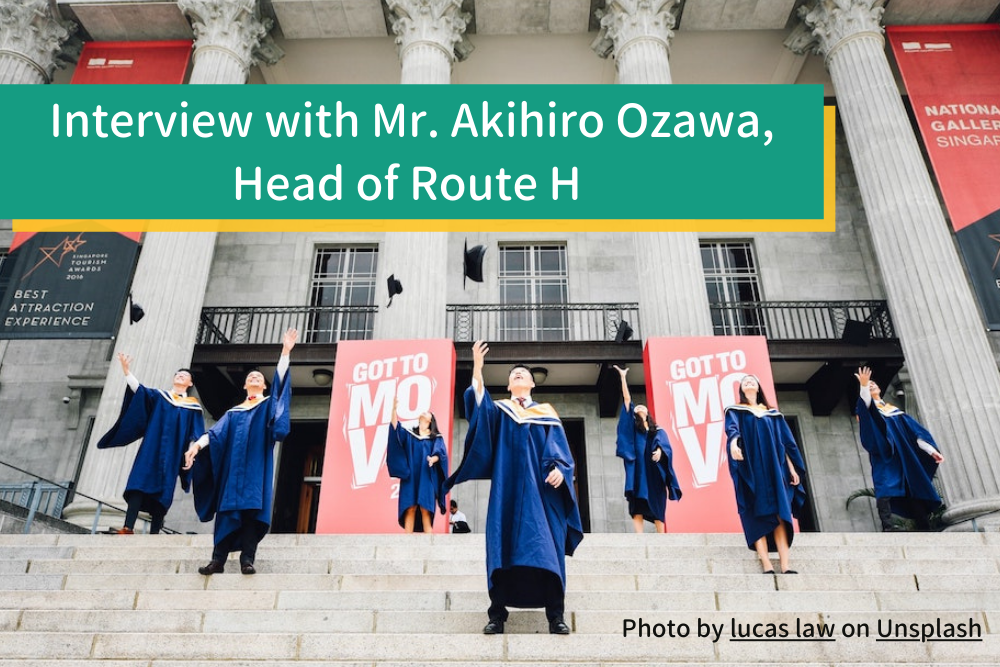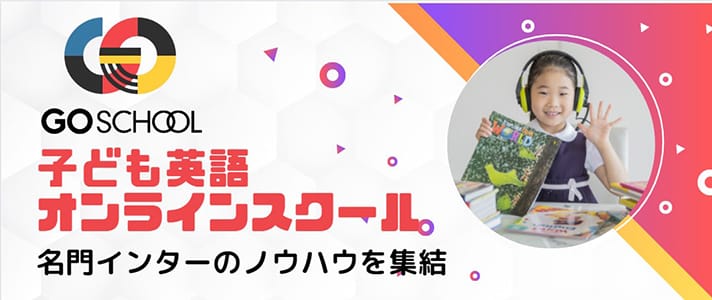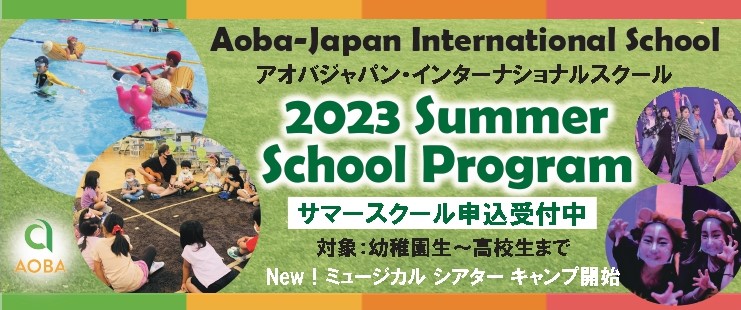Interview with Mr. Akihiro Ozawa, Head of Route H about the secret to success in getting into elite overseas universities
Have you heard about Route H, a prep school specializing in entrance exams for prestigious foreign universities?
Although it does not do much advertising, every educationally conscious family knows its name.
Along with Tetsuryokukai, Benesse Corporation’s flagship school attracts more and more students of the best class mainly from prestigious schools in Japan, and continues to produce students who have been accepted to Harvard and Yale Universities for 12 consecutive years, is located in Tokyo.
Our editorial team interviewed Mr. Akihiro Ozawa, the head of Route H, about the secret to success in getting into elite overseas universities.
Image: Mr. Akihiro Ozawa, the head of Route H
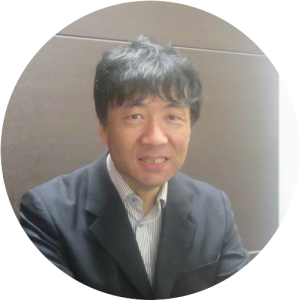
The head of Route H, an elite overseas university preparatory school (Benesse Corporation group)
After working as a writer for a U.S. newspaper, Mr. Ozawa joined Benesse Corporation in 1995.
After working as editor-in-chief of Shinken Mock English examinations, he was appointed to his current position in 2009. He has helped over 90% of the students (140 students) to achieve their academic goals, including 28 students from Harvard University and 34 students from Yale University.
He has sent more than 90% of his students (135 students) to top universities abroad, including 28 to Harvard University and 34 to Yale University.
He has given many tips for successful elite university application, produced events for students to attend top universities abroad, and he also promotes exchanges with some of Harvard student organizations.
Setting the standard for “choosing a career path from all over the world”.
Japan is a country in steady decline, with a declining birthrate, an aging population, and a rapidly shrinking domestic market. With low salaries for university graduates, young people can no longer imagine a bright future after graduating from a Japanese university. High school students are now aiming for globally viable careers, and it has become the norm for them to pursue universities overseas in addition to universities in Japan. In recent years, in addition to traditional Japanese integrated junior and senior high schools, even the brightest students at famous metropolitan and regional public schools are increasingly looking to “choose a career path from around the world.
However, the know-how to get accepted to overseas universities has not yet been generalized but has been accumulated by the Route H Group, which produces many students who are accepted to elite overseas universities and global universities in Japan every year. The Route H Group is the only Japanese school to have produced students who have been accepted to Harvard and Yale for 12 consecutive years.
Route H Group’s Acceptance Record (excerpts from 2010-2021)
Harvard: 28 (12 consecutive years), Yale: 34 (12 consecutive years), Princeton: 23 (9 consecutive years), Stanford: 11 (2 consecutive years), MIT: 7, Oxford: 6, Cambridge: 1
What kind of students are there on Route H?
Approximately 80% of the students live in the Tokyo metropolitan area. Many students aspire to University of Tokyo or medical schools, and many of them attend so-called prestigious private junior and senior high schools, such as Kaisei, Shibushibu, Shibumaku, Seiko, and Hiroo in Tokyo, and Nada, and Koyo in Kansai, except a few prestigious national schools, such as and affiliated schools of University.
A little more than half of the students are from international schools and returnees. The rest have little or no previous experience living abroad.
Recently, students from Kansai, Kyushu, and other regions, as well as students who reside abroad due to their parents’ expatriation, and foreign nationals, have been participating in online classes. In the past, it was thought that the Tokyo metropolitan area, where information is concentrated, had the advantage of advancing to overseas universities, but we believe that even if you live in a rural area, you can make it if you build up your grades, extracurricular activities, and award history, and prepare for the TOEFL and other score-making activities from your first year of high school.
Recently there has been an increase in the number of local high school students who have been accepted to overseas universities after having never been accepted before, and more and more students are actively working on their own to obtain information and knocking on Route H’s door.
However, some public high schools in rural areas that do not have many students who have been accepted to overseas universities do not know how to write school introductions to be submitted to overseas university admissions.
Why are Japanese junior and senior high school students now aiming for elite overseas universities?
Many junior and senior high school students are attracted by the knowledge and skills acquired through many classes that require output through discussions and other activities with a diverse group of students from all over the world, as well as the human skills and global network of friends that is cultivated through dormitory life.
In addition, since it is possible to double major or minor in arts and sciences, students can pursue their fields of interest, which is also attractive.
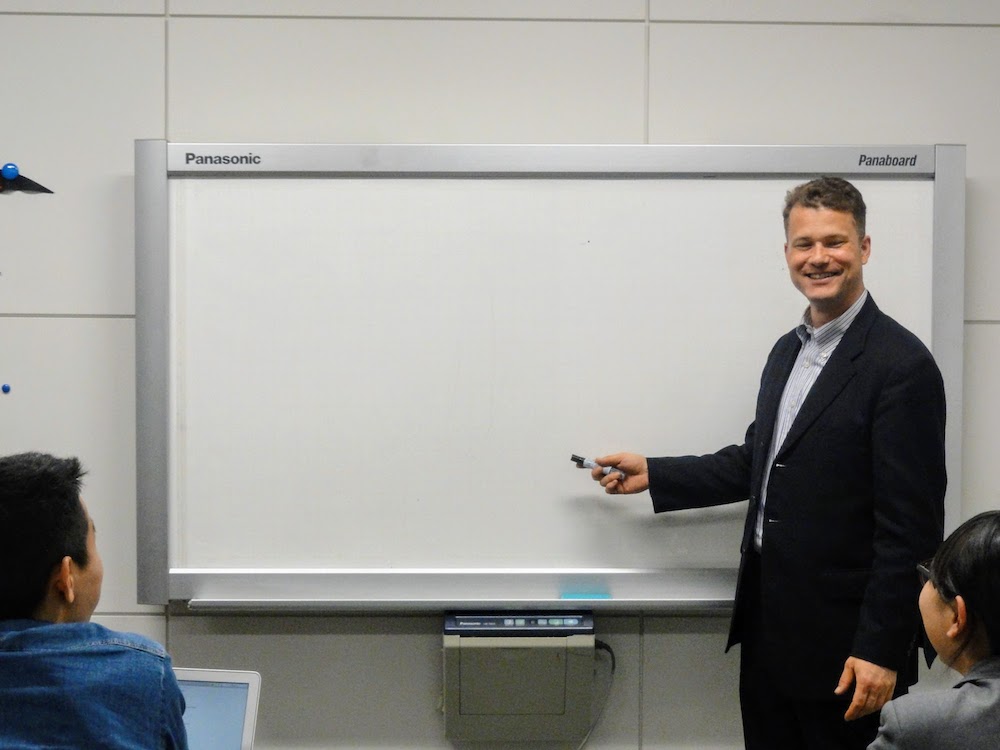
The following are some of the attractions of elite universities abroad that we as Route H consider.
Attractiveness of Elite Overseas Universities
●Diversity brings vitality to the university
The diversity of our students, who come from all over the world, transcending cultural and generational differences, brings vitality to the university. We believe this is the reason why the admissions process places so much emphasis on extracurricular activities. The “university power” is further enhanced by the friendly competition with multi-talented friends and the expansion of networks around the world.
●Diverse and Flexible Educational Capabilities
At American universities, the curriculum is highly flexible, as students study a wide range of subjects in the liberal arts in their first and second years before deciding on a major. Incidentally, many universities in countries other than the U.S. allow students to decide on a major and enter the university to begin research in their first year.
At overseas universities, students can double major in two fields of study at the same time, change majors several times, study abroad, audit courses at other universities, transfer credits, etc. are popular.
●Financial Support for Tuition Assistance
Many overseas universities offer “Financial Aid” and “Scholarships” to attract the best and brightest students. Some universities offer partial funding for extracurricular activities and events, while others cover living expenses and travel costs.
●A wealth of options and resources
In addition to a wide variety of academic programs, there are many options for extracurricular activities and research, many of which are both extensive and high-level. You can take advantage of the abundant resources of top universities, including state-of-the-art research facilities. At universities with graduate schools, you can also take graduate courses. With so many options, you can choose the academic studies and activities best suited to your individual needs.
●Human skills and a sense of solidarity cultivated through dormitory life
For many new students, dormitory life allows them to deepen their diversity, cross-cultural understanding, and sense of solidarity through interaction with students from other countries, learning about their respective values. It is also a great opportunity to acquire advanced communication skills. By deepening exchanges with students from various countries, students can learn about the situation in each country and the way of thinking of the people of that country.
●Friendly competition through discussion and collaboration
In addition to lectures by professors, large universities offer small-group classes (called “sections” or “seminars”) taught by Teaching Assistants, in which students deepen their understanding of a subject through friendly competition with their peers through discussions and collaborative homework assignments. The system is thorough.
Foreign universities holistic evaluation
We have talked about the appeal of foreign universities, but preparing for the holistic evaluation of foreign universities requires planning. In addition to maintaining good grades at your current school, you will need to plan for extracurricular activities, study for the TOEFL / SAT, as well as write essays, request letters of recommendation, and prepare financial certificates.
In particular, TOEFL / SAT scores are a qualification for application, and from what we have seen so far with our students, it takes a considerable amount of time to obtain the scores, although it varies from person to person. In addition, from the summer vacation of the junior year of high school, preparation for the domestic examinations will be in full swing, so we would like students to start their preparation as early as possible.
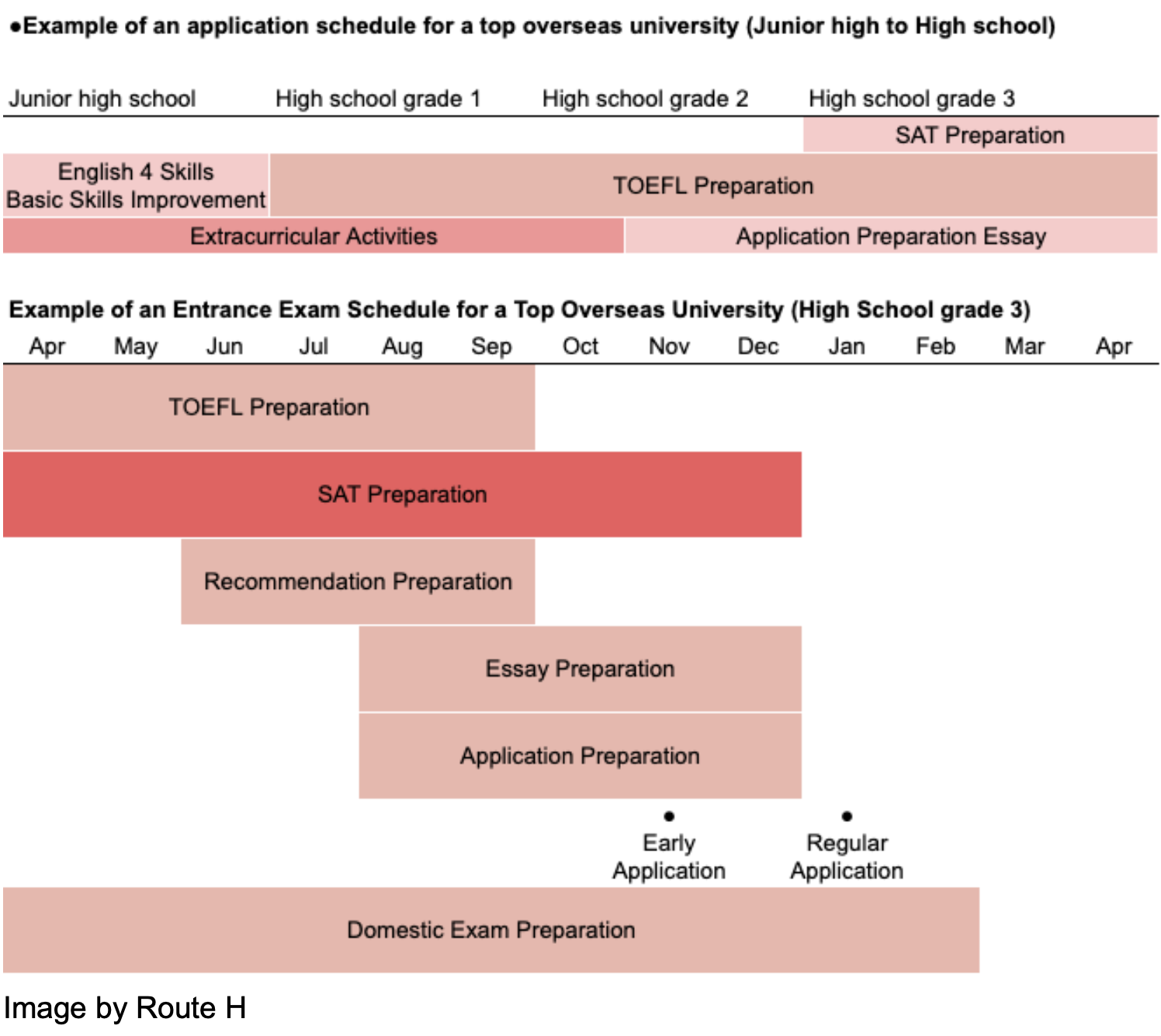
Important Points for Admission Screening
The basic stance of a prestigious university is to bring together the best students from all over the world and energize the campus with their diverse strengths. For this reason, we do not decide whether to accept or reject students based on academic ability alone. In fact, some top-ranked universities may reject applicants even with a perfect score on the SAT. Based on the essay and interview at the time of application, universities are looking for well-balanced or well-lopsided individuals who have proven themselves in extracurricular activities in addition to academics, and who excel in intense enthusiasm, high motivation, leadership, and imagination. To find out how you can appeal to these qualities to admissions officers, first sort out your strengths and challenges.
●Balance: Holistic Evaluation of “Academic Ability + Human Potential”
Academic performance, test scores such as SAT and TOEFL, application materials (especially extracurricular activities and awards received), essays, and interview comments are all considered in order to identify suitable candidates for admission.
●Passion: Relentless “enthusiasm” for admission
I want to into this university! It is important that you demonstrate your strong enthusiasm for applying to this university. Before applying, watch online university information sessions, visit universities, and look over course syllabi in your desired field of study so that you can give a clear and compelling reason for your application in your essay and interview. I would like you to be sure to watch online college information sessions to determine if a university is a good fit for you.
●Creativity: Distinctive “individuality” and “originality
A mere all-rounder is not decisive enough. We want to see some special, eye-catching strength, such as a record of achievement in some national or world competition. Admissions officers look through hundreds or thousands of applications and even more essays. The essays must also be unique and original. There is no reason to be chosen if you are mediocre.
●Contribution: Contribution” to raise expectations
It is not enough to run toward your own goals. It is also important that you can be a good fit for the college and a good contributor to the college. This is why questions such as, “What contributions did you make to the community in high school?
●Leadership: A “driving force” to change society
People who move (or change) society for the better are preferred. In addition to outstanding achievements in academics and extracurricular activities, they will be evaluated on how well they are recognized by those around them and how influential they have been in solving problems. It is not only the position of the leader, but also what he or she does that counts.
Appendix: What top universities are looking for
For example, Harvard University’s website includes words such as “leadership” and “community service” as well as “someone who educates students and professors alike – someone who inspires those around them,” while Stanford University’s website includes words such as “academic excellence,” “intellectual vitality,” and “curiosity and enthusiasm. The Stanford University website is littered with words such as “academic excellence,” “intellectual vitality,” “curiosity and enthusiasm. Because there are both similarities and differences in the personality traits each university looks for, Route H instructors will vary their essay and interview preparation based on the student’s school of choice as well.
Documents required for application
Now that we have talked about the attractiveness of overseas universities and the type of person they are looking for, let’s take a look at the specific documents required for the application process.
The required documents may vary from country to country and university to university, but they mainly include an application form, transcripts, essays, letters of recommendation, and test scores.
Some of these documents are to be prepared by yourself, some are to be prepared by school teachers, such as letters of recommendation, and others are to be submitted by the TOEFL or SAT administrator. In addition, a certificate of financial ability may be required, in addition to withholding tax and tax returns prepared by your parents.
| Application form | Online application is the most common method. Many U.S. universities require applicants to submit both a common application form and university-specific application forms. The common application form includes personal information, academic records from high school, extracurricular activities, awards received, test scores (TOEFL, SAT, etc.), and instructions for writing a personal essay. College-specific application forms also include a variety of questions and an essay section. |
| Report of results | Ask your high school to issue a transcript in English. Ask your academic advisor or homeroom teacher. Many universities require transcripts to be sent directly from the school. If you changed schools midway through your studies, you will also need documents from your previous school. |
| Essays | In many cases, U.S. universities that are members of the Common Application, require a personal essay for the Common Application and a supplement essay for each university. In the Common App essay, you will express your strengths through episodes, etc., and in the supplemental essay, you will appeal to yourself through your motivation for applying and other essays. Each university has its own word limit for essays, so it is necessary to write an essay that meets its requirements. You should research the university thoroughly and write a clear statement of your reasons for applying. |
| Recommendation letters | Communicate objectively about the applicant’s strengths, qualities, and human attractiveness. We would like to emphasize the importance of daily communication with high school homeroom teachers, career guidance teachers, and teachers of major subjects so that we can request them. Since letters of recommendation are required to be more specific than those for domestic universities, it is important to have a teacher who has a good grasp of you prepare them. Please note that some universities require two or three letters of recommendation. In addition, if you have something special to say, you may ask someone outside of your high school to write an external letter of recommendation. |
| Test scores | Take a test designated by each university. The scores are then sent to the school of interest from the organization administering the test. Although the SAT and ACT have introduced a score choice system, many universities require all scores taken in the past to be submitted and evaluate the scores based on the highest score in each section. In the case of the regular application, senior high school students should, if possible, obtain a high score on the test taken during the year and submit it along with other application materials. In the case of the TOEFL, some universities require a minimum score of 100 on the iBT (Internet-based Test), so it is advisable to take measures to exceed this score as early as possible. |
Test Scores, Guidelines for Examination Documents
To apply to universities around the world, you will often be asked to submit a variety of documents. You need to get good grades on all documents as much as possible, especially if you are applying to the top universities in the world. Extracurricular activities, awards, grades, essays, and test scores that you can work on on your own should be planned and prepared well. School grades are especially important, so we want you to make sure you get high scores on your daily schoolwork and on your midterm and final exams.
Online application form | Report of results | Documents to be submitted | Test score | ||||||
Extracurricular Activities | Awards | GPA | IB Points | Essay / Reasons for applying | Recommendation letter | TOEFL iBT | IELTS | SAT / ACT | |
| Top Prestigious University | ◎ | ◎ | 4.5~5.0 | 43+ | ◎ | ◎ | 110+ | 8.0+ | 90%+ |
| Top University | ◎ | ◎ | 4.0~4.5 | 30+ | ◎ | ◎ | 100+ | 6.5~7.0 | 80%+ |
| University | ◯ | ◯ | 3.5~4.0 | 25+ | ◯ | ◯ | 90+ | 6.0~6.5 | – |
| Foundation Course Community College etc. | △ | △ | 3.0~4.0 | △ | △ | 60~80+ | 5.0~6.0 | – | |
*The above scores are only a guide. Overseas universities will make an overall evaluation based on the submitted documents.
*◎Very important, ◯Important, △Not very important
Promote Extracurricular Activities
The Common Application and other common application forms for U.S. universities include a section for listing awards received for extracurricular activities from junior year through senior year (grades 9-12) of high school up to the time of application (up to 10 awards may be listed). By no means do we mean that you must fill out all of these to be accepted to a top university.
With so many applications coming in, we believe that what is important to showcase yourself as much as possible is the “quality” as well as the number and quantity of your activities. The more quality activities you have in your history, the more likely you are to catch the eye of an admissions officer. Here is a list of typical types and examples of extracurricular activities that can be found on the application form for your reference.
In particular, please check out the examples of activities listed here, as there are many more that middle and high school students can participate in than those listed here.
Type / Common Application Form in English | ex. |
School Spirit | Activities in student councils, committees, classes, and intramural events (cultural festivals, etc.). Activities in the school’s athletic teams and clubs are included in the following Athletics. |
Athletics: Club | Activities in athletic clubs and sports clubs. |
Academic | History of participation in academic competitions such as various Olympiads, Model United Nations, essay contests, etc., in which students compete at the academic level in mathematics, science (4 subjects), geography, philosophy, linguistics, etc. Participation in summer schools, camps, etc. are also included. Awards won in competitions are generally written in the Honors section (see next page). |
Science, Math | Participation in science and math clubs, camps and programs, and research activities at universities and other institutions. |
Foreign Language | ESS activities within the school, foreign language learning history, etc. |
Foreign Exchange | Participation in and management of overseas exchange events and programs. |
Debate, Speech | Participation in debate competitions, speech contests, etc. Academic Model United Nations may be listed here. |
Community Service (Volunteer) | Volunteer activities of any kind (volunteer work with NPOs, etc. is acceptable). Volunteer activities related to your future career should be listed in the Career Oriented section. |
Career Oriented | Internship experience and history of activities at companies, NPOs, etc. |
Journalism, Publication | Creating articles for publications, etc., contributing articles, books, and other publications themselves. |
Music: Instrumental Music: Vocal | Instrumental studies, performance history, choral history, etc. |
Art | General activities related to art. Creation of brochures for on-campus events (design, etc. may also be entered.) |
Other Club, Activity | Enter here any items that do not fit easily into any of the above categories. |
Let’s also promote the awards you’ve won in academic competitions.
As with extracurricular activities, the Common Application also includes a section for academic competition awards won between junior year and senior year of high school. While winning international or national competitions is not necessarily required for acceptance to top schools, such a history will naturally provide more material for self-promotion. So, what types of competitions have applicants to prestigious schools actually won awards in? We have compiled a list of the main types and specific examples.
Of course, there are many other contests and programs that junior and senior high school students can participate in in addition to those listed here, so please do your research.
Type | ex. |
Olympics in each subject area | In addition to the “Math Olympiad” and “Physics Olympiad,” which are held in each of the subjects of mathematics, physics, chemistry, biology, geology, and geography, there are also philosophy and information Olympiads (top national winners are eligible to compete in the world championships). |
Competitions with a high weighting of English language skills | English Debate Tournaments (National High School English Debate Tournament, Route H Debate Tournament, etc.) English speech contests (Churchill Cup, Honolulu Mayor’s Cup, etc.) Model United Nations (High School Model United Nations, etc.) Awards received in essay contests in Japanese may also be listed. |
Other Academic Competitions | Business contests, presentation contests, and competitions in which multiple skills are completed entirely in English (World Scholar’s Cup, etc.). |
International Conferences International Exchange Programs | Participation as a representative of Japan in an academic international exchange program or international conference for high school students, after having been selected in Japan, etc. may also be listed. |
Scholarship | Foundation-based scholarships such as the Tadashi Yanai Foundation, the Masayoshi Son Scholarship Foundation, the Sasakawa Peace Foundation, the Ezoe Foundation, and the Funai Foundation; scholarships from the Grue Bancroft Foundation, JASSO, and other scholarship programs with selection process provided by various organizations, as well as scholarships provided by some local governments. |
We don’t want you to give up on going abroad for higher education, no matter what environment you are in.
Although it is often thought that the pursuit of an overseas university is a privilege reserved for wealthy families who can afford to pay tuition fees of nearly 6-8 million yen per year, including dormitory fees, at a prestigious private university in the U.S., for example, this is not actually the case.
In recent years, various scholarships have been offered to students who wish to enter universities abroad, including Scholarship, which is a non-repayable scholarship for outstanding students, and Financial Aid, which provides tuition assistance based on a family’s income.
Well-funded private universities in the U.S. are famous for offering many scholarships to outstanding students. But, of course, obtaining a scholarship is not easy.
Scholarships can be divided into “repayment scholarships” and “non-repayment scholarships. Scholarships that must be repaid are those that are paid in installments with interest in the form of an educational loan from a financial institution, the Japan Student Services Organization (JASSO), or the Japan Finance Corporation (JFC).
Non-repayment scholarships” fall into the following three categories
- Scholarship provided by the national, prefectural, and municipal governments
- Scholarship provided by companies and foundations
- Scholarship and Financial Aid provided by universities
●What is required to obtain Scholarship?
The most important thing is your passion to get into that university. School grades, English proficiency, and extracurricular activities will also be included in the screening criteria. A solid reason for your application and future potential will be checked.
Examples of scholarships (2021 results)
●The Tadashi Yanai Foundation Overseas Scholarship
Up to $70,000 per year to cover tuition, textbooks, insurance, dormitory fees, and other expenses charged by the university for four years of undergraduate study for Japanese students who wish to attend top-level educational institutions in the U.S. (approximately 20 students)
https://www.yanaitadashi-foundation.or.jp/
●The Ezoe Memorial Foundation Scholarship (Academic Division)
Up to 10 million yen per year (about 10 students) for students who wish to enter universities, graduate schools, etc. overseas.
https://www.recruit-foundation.org/scholarship/
●Funai Overseas Scholarship (Undergraduate Study Abroad)
Provides $30,000 per year for up to four years of undergraduate study for Japanese students pursuing a degree at an overseas university (for a few students).
https://www.funaifoundation.jp/scholarship/scholarship_guidelines_bachelor.html
●Masayoshi Son Scholarship Foundation Scholarship
The purpose of this scholarship is to support young people with high aspirations and different talents by providing scholarships for tuition and living expenses incurred during study abroad and research. The content, amount, and duration of the scholarship will be determined on a case-by-case basis during the selection process. (About 30 students)
https://masason-foundation.org/requirements/
At Route H, we do not want students from any family background to give up on the path to an overseas university, so we are committed to this type of scholarship preparation.
In fact, we offer online and sometimes in-person classes to students attending high schools in rural areas that have never had a single student go on to an overseas university before. We do not want students to give up on the idea of going abroad for higher education, no matter what their circumstances.
Since Route H is Benesse’s top brand for overseas higher education, it is important that it remain the flagship. Therefore, we have made our tuition fees not much different from that of a typical English language school.
Also, as explained so far, Route H focuses on preparing students for elite overseas universities, but depending on the type of student and his/her goals, we may recommend other universities in Canada, Singapore, Australia, or other countries with lower tuition and dormitory fees as parallel schools besides top universities in the U.S. and the U.K. However, depending on the type of student and his/her goals, we may recommend other universities in Canada, Singapore, Australia, or other countries with lower tuition fees and dormitory fees.
And although our service is for middle and high school students, some of our graduates have entered domestic universities and taken classes at Yale, Brown, and other universities as exchange students. We believe that working MBAs, government-sponsored students, and graduate students can also study abroad. In fact, an increasing number of Route H graduates have gone on to graduate school after graduating from top universities abroad.
Editorial Summary
It seems that applying to overseas universities is not a so-called one-shot paper test, but rather a foundation of self-improvement, self-promotion, and solid English language skills that will be useful for a lifetime. For all students, once they have experienced preparation for an overseas university, it is likely to be a positive factor for the rest of their lives.Whether you are a student at an integrated junior or senior high school that is strong in overseas universities, already attending a university in Japan, or considering an MBA or recurrent student, if you are thinking about attending an overseas university, you should consult with Route H. Route H is a school that will stand by you, draw out your strengths, and help you choose a career path from all over the world. I thought that Route H is such a cram school that will help you to choose a career path from all over the world.
Access
Location: 1-103 Kanda Jimbocho, Chiyoda-ku, Tokyo 101-0051
Website: http://rt-h.jp/
TEL: 0120-584-880
Writer: Kaori Takahashi (eduJUMP! Editorial Team)

